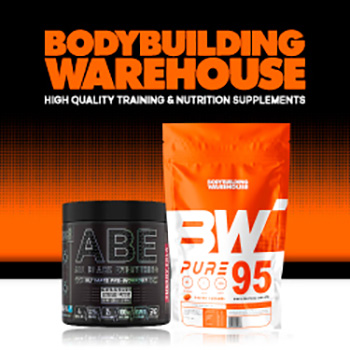
Advanced Performance Nutrition:
Summary
- Consuming carbohydrates before a workout can provide immediate energy, while protein after a workout can speed up recovery, enhancing athletic performance.
- Athletes need personalized nutrition plans that take into account their specific sport, training phase, and individual metabolic needs, rather than a one size fits all approach.
- Hydration is more than just drinking water. The balance and timing of electrolytes are crucial for maintaining performance and preventing fatigue.
- Nutrition for recovery, including anti inflammatory foods, can reduce the downtime between training sessions and extend an athlete's career.
- Precision Performance Nutrition's comprehensive athlete assessment provides customized nutrition protocols that have helped professionals achieve breakthrough results.
The difference between good and great performance is nutrition. What you eat and when you eat it can determine whether you hit the wall or break through it. The days of generic nutrition advice for athletes are over. Today's competitive edge comes from precision fuelling strategies tailored to your body, sport, and goals.
Advanced sports nutrition isn't just about eating “healthy” foods. It's a strategic science that times specific nutrients to support training adaptations, enhance recovery, and maximize performance when it matters most. Whether you're an endurance athlete, power athlete, or team sport competitor, understanding how to fuel your specific energy systems can transform your results.
What the Pros Know: The Advantage of Performance Nutrition
For elite athletes, nutrition isn't just something that happens outside of training it's an integral part of the training process itself. While amateur athletes often focus exclusively on workout programs, professionals know that what happens in the kitchen is equally important to what happens in the gym. They approach their nutrition with the same precision and dedication as their physical training, viewing food as fuel rather than just sustenance.
At the pinnacle of athletic competition, athletes don't just eat to satiate hunger they eat with a clear goal in mind. Each meal and snack has a specific purpose, to provide energy for training, to supply the building blocks for recovery, or to prepare the body for competition. This strategic approach to nutrition provides them with a competitive edge that's hard to beat with just physical training. Precision Performance Nutrition has been at the forefront of developing protocols that help athletes determine their unique metabolic needs and devise eating plans that optimize both health and performance.
What separates the good from the great is often their recovery capacity how fast an athlete can recover from intense training and adapt to the stimulus. Top tier athletes give recovery nutrition the same importance as their workouts, knowing that this is where improvements in performance are truly made.
Timing Your Macronutrients for Optimal Performance
Think of your nutrition like a symphony each part needs to play at exactly the right time. Depending on where you are in your training schedule, how far along you are in recovery, and how close you are to a competition, your body's nutritional needs can change a lot throughout the day. This relationship between when you eat and how you perform is what makes advanced sports nutrition so effective.
Carb Loading: Timing and Quantity
Carb loading isn't just for marathon runners. Studies show that smart carb manipulation can help athletes in almost all sports. The trick is knowing when to up your carb intake based on your training and competition schedule. For high intensity activities, eating 8-12g of carbs per kilogram of body weight in the 24-36 hours before competition can max out glycogen stores and boost performance.
It's not enough to just consume carbs the type of carbs you consume is equally important. Choose carbs that are easy to digest and have a moderate to high glycaemic index, such as white rice, potatoes, and sports drinks, when you need to fuel up quickly for a performance. When you're in recovery or training and don't need to worry about digesting your food quickly, you can focus on fibre rich, complex carbs.
How Much Protein Do You Need for Muscle Healing and Growth?
The timing of your protein intake can have a big effect on how your muscles synthesize protein and recover. To get the best results, you should try to eat 20-40g of high quality protein within 30 minutes of finishing your workout, when your muscles are most ready to take in nutrients. While the “anabolic window” isn't as limited as we used to think, making the most of it can help you recover and adapt more quickly.
When you eat is just as important as how much you eat. Studies have found that eating protein in equal amounts throughout the day (4-6 meals of 20-40g) is more effective at stimulating muscle protein synthesis than eating the same amount in just 2-3 larger meals. For athletes who do heavy resistance training or have multiple training sessions a day, they may need as much as 1.8-2.2g of protein per kilogram of body weight daily.
Smart Fat Intake for Long lasting Energy
Despite its bad reputation in the world of sports nutrition, smart fat intake is essential for long lasting energy, particularly for endurance athletes. Healthy fats should make up about 20-35% of an athlete's diet, focusing on omega-3 fatty acids found in fatty fish, flaxseeds, and walnuts. These fats help reduce inflammation and support hormone production that is vital for recovery and adaptation.
Teaching your body to use fat as fuel can significantly boost your endurance by conserving your glycogen stores. This metabolic flexibility takes time and consistency it usually involves training in a glycogen depleted state, typically through fasted morning workouts or specific low carb training periods. Just keep in mind that your performance in high intensity workouts may temporarily drop while your body is adjusting.
What to Eat Before, During, and After Your Workout
Before you work out (2-4 hours prior), focus on eating foods that are high in carbohydrates that are easy to digest, a moderate amount of protein, and minimal fat. This will help maximize the energy you have available while minimizing any discomfort in your stomach. If you're exercising for an extended period of time (more than 60 minutes), try to consume 30-60g of carbohydrates every hour. This will help maintain your blood glucose levels and delay fatigue. After you've finished your workout (within 30-60 minutes), focus on consuming protein and carbohydrates that are rapidly absorbed. Aim for a 1:3 or 1:4 ratio of protein to carbohydrates to jumpstart your recovery.
When training twice a day, the timing of your nutrition becomes even more important. The meal you have in between sessions should focus on speeding up recovery. This can be achieved through liquid nutrition options that speed up the process of glycogen resynthesise and protein repair. Once the initial recovery processes have started, you can then move on to solid food.






